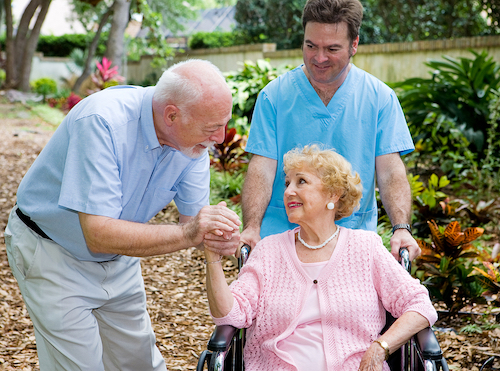 Feeling lonely as an older person is not uncommon; issues with physical health and mobility may limit an older person’s ability to get out and interact with others.
Feeling lonely as an older person is not uncommon; issues with physical health and mobility may limit an older person’s ability to get out and interact with others.
Increasingly, older adults are moving into retirement communities where shared common areas, planned social outings and events and communal activities are designed to encourage socialization and prevent loneliness.
Now, researchers from the University of California San Diego have set out to determine why older people living in such communities can still feel lonely.
“In recent years, older adults are increasingly moving into senior housing or retirement communities. There is little published literature on qualitative studies of loneliness among independent living older adults in such communities. These people are not socially isolated, since the senior housing communities provide proximity to others, shared common areas, planned social outings, transportations, and other communal activities. Understanding loneliness within the context of a senior housing community is important because it is independent of social isolation,” Dr. Dilip Jeste, senior author of the study and senior associate dean for the Center of Healthy Aging at UC San Diego told Theravive.
“There is a public health epidemic of loneliness with serious physical and mental implications. As loneliness is a subjective internal experience, it is important to consider the qualitative perspectives of older individuals with respect to the characteristics and associations of loneliness,” he said.
In undertaking his research, Jeste and his colleagues conducted interviews with 30 adults aged between 67 and 92 living in an independent living sector of a community housing seniors in San Diego.
Although the participants lived in an area with access to communal settings, 85 per cent of those surveyed said they had moderate to severe levels of loneliness.
“Loneliness rivals smoking and obesity in its impact on physical health and longevity. Loneliness is associated with diabetes and other metabolic diseases, heart disease, depression, anxiety disorders, among other psychiatric disorders. Loneliness increases the risk of developing dementias such as Alzheimer’s disease,” Jeste said.
The researchers found three main themes emerged from the interviews; age associated losses and inadequate social skills were both risk factors for loneliness, feelings of loneliness were often linked with feelings of a lack of purpose in life, and wisdom and compassion seemed to prevent feelings of loneliness.
“People’s experience of living with loneliness is shaped by a number of personal and environmental factors which constantly interact with one another and determine the way people adjust to loneliness over time,” Jeste said.
“If loneliness is considered a toxin, then wisdom may be considered an antibiotic or vaccine against loneliness. People who are wise, that is, with compassion, control over emotions, knowledge of self, accepting of diversity in life, and spirituality – are much less likely to be lonely. Wisdom is a potentially modifiable trait, and there is evidence that psychosocial interventions can improve emotional regulation and compassion/empathy as well as spirituality. For example, mindfulness-based stress reduction improves self-compassion in medical students, while goal management training increased emotional regulation in adults with acquired brain injuries,” he said.
By 2029, more than 20 per cent of the population of the United States will be over 65. Jeste says it is essential that more research is undertaken to further explore the impact of loneliness in older people.
“Studies are needed to better understand the experience of loneliness in older adults living by themselves, and especially those from racial/ethnic minority groups, who are at an increased risk of loneliness. Studies are needed to promoting wisdom at the community level so as to enhance the quality of social relationships through compassion and emotional regulation,” he told Theravive.
“There is often a tendency to deny the presence of loneliness because of stigma associated with it. Therefore, lonely individuals shy away from talking about it, let alone seeking treatment for it. The result is worsening anxiety and depression, with poor sleep and poor eating, leading to weight loss or other medical problems. Reducing the stigma associated with loneliness is important. Loneliness is a part of personality and a part of daily life, and nobody should be ashamed of it. At the same time, because of its adverse impact on health, it should be treated when disabling.”
Elizabeth Pratt is a medical journalist and producer. Her work has appeared on Healthline, The Huffington Post, Fox News, The Australian Broadcasting Corporation, The Sydney Morning Herald, News.com.au, Escape, The Cusp and Skyscanner. You can read more of her articles here. Or learn more about Elizabeth and contact her via her LinkedIn and Twitter profiles.